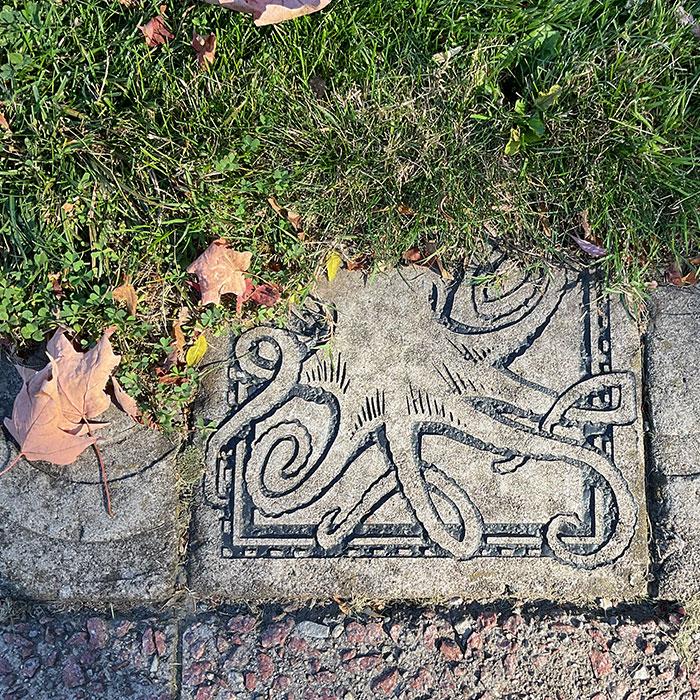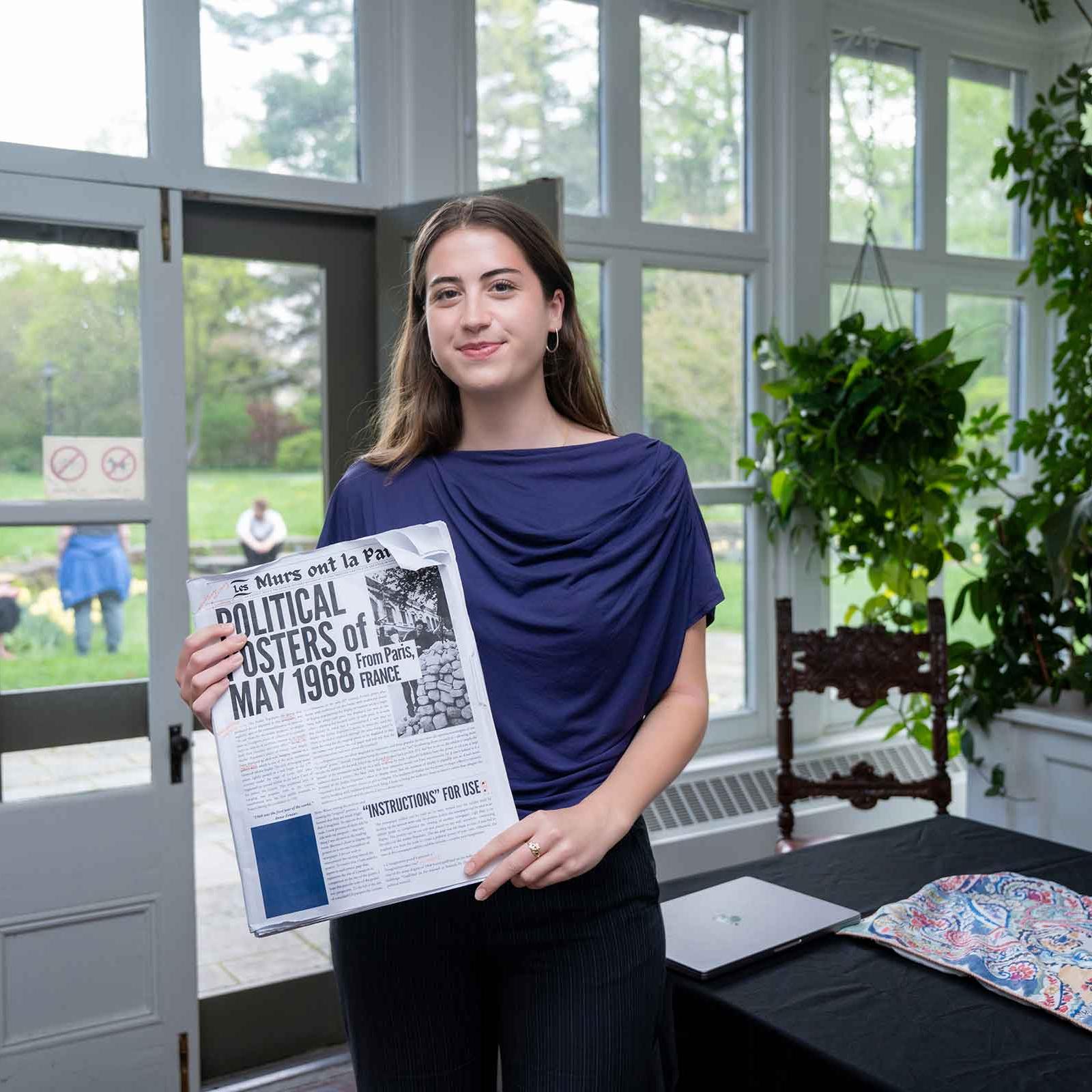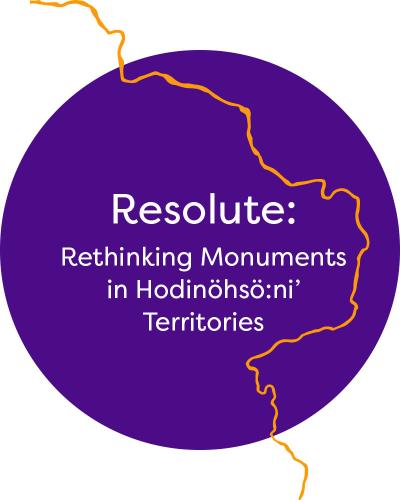In an essay as part of the RH Pamphlet Collection, 2022 Exemplary Project Grant recipient Bushra Aumir (B. Arch student in the department of Architecture, Art and Planning) shares the details and context behind her art installation, an anti-monument, called Resolute.
Click to read the essay booklet online!
"An anti-monument is one that is able to interact with its audience, a monument capable of arousing emotions and giving a deeper understanding of a moment in history. My first instinct was to tell a story about the land that Cornell occupies."
After conducting her own research and collecting stories from Seneca Nation community members, Aumir decided to tell the story of the Kinzua Dam flood:
Signage Statement
The path you are walking on belongs to the Cornell community; however, I will be taking away your access to it. It symbolizes how the native land still belongs to the Seneca Nation but is inaccessible to them because the government chose to flood it even though there was an alternative solution. The installation is a commentary on land ownership and what accessibility means to one’s land.
The story behind the construction of Kinzua Dam is a powerful one, and brings to the forefront the pain, suffering, and resilience of the Seneca Nation.
Routes Installation
Indigenous Peoples Day
06-11 Oct 2021
Official Cornell University Event
Read more in "Resolute: Rethinking Monuments in Hodinöhsö:ni’ Territories" embedded below:
Funded by the Rural Humanities initiative, Exemplary Project Grants showcase Cornell student projects and collaborations from the Spring Seminar, specifically those works in the in public and digital humanities.
Bushra Aumir is a B.Arch student in the Cornell Department of Architecture, Art and Planning where her work has focused on land dispossession in the Hodinöhsö:ni’ Territories.






